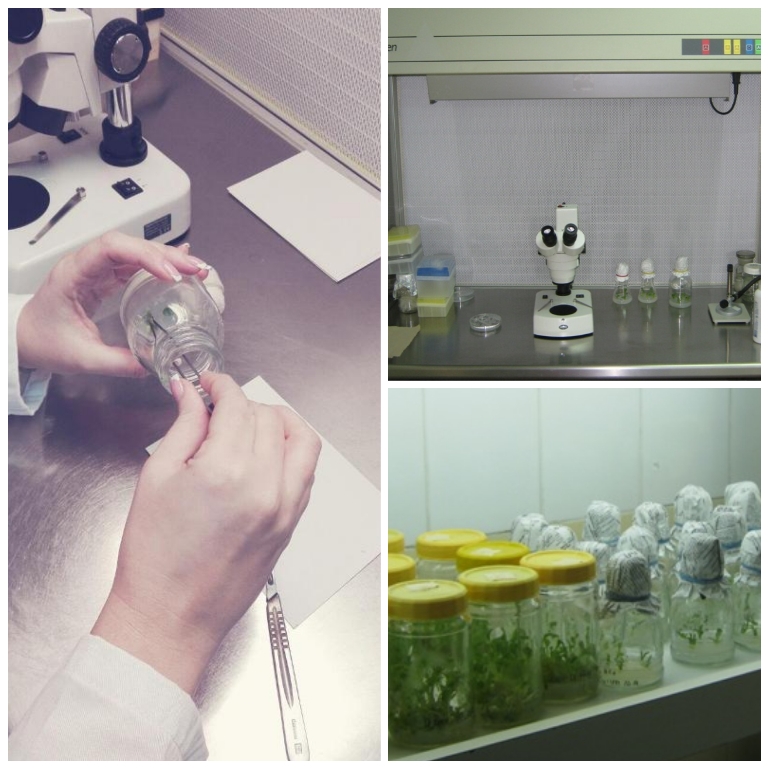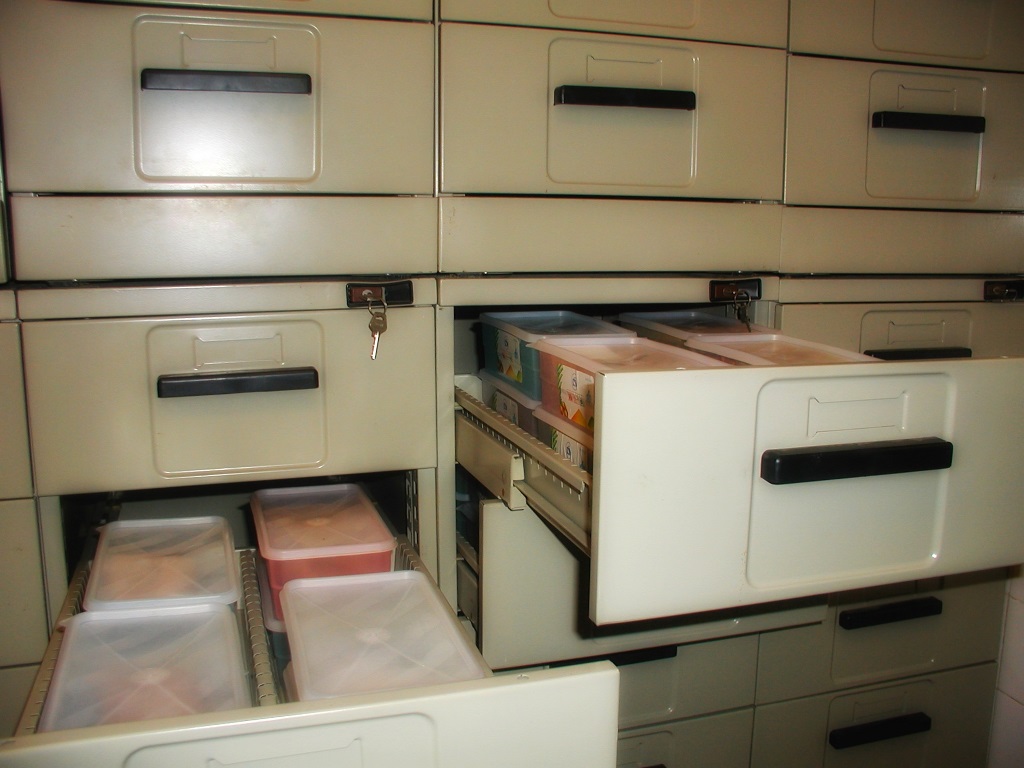Department of Genetics and Vegetable Breeding
This is one of the largest departments at the Institute for Vegetable Crops. The most important task of this department is the selection, mending of old and creation of new varieties and hybrids of vegetable crops:
• Pepper (Capsicum annuum L.)
• Тomato (Solanum lycopersicum L.)
• Cabbage (Brassica oleracea L. var. capitata L.)
• Cucumber (Cucumis sativus L.)
• Pea (Pisum sativum L.)
• Bean and Snap bean (Phaseolus vulgaris)
• Melon (Cucumis melo L.)
• Watermelon (Citrullus vulgaris Schrad.)
Some of the aims of breeding vegetable crops are: the improvement of production traits and quality, resistance to pathogens – causers of plants diseases, resistance to abiotic stress – drought, high and low temperature).
Breeders combine classic selection methods with some new biotechnological methods that have been introduced in a last few years and which ease the selection process. Biotechnological methods are very important in breeding process since they enable the study of breeding material, determination of variability, analysis of genetic distance, determination of resistance gene to pathogen and stress conditions, examination of genetic purity of seed, identification and registration of new varieties, micropropagation of desired genotypes, obtaining of haploids and homozygote lines (anther culture). Besides the selection, the team of researchers from this department is dealing with scientific research work within various national and international projects regarding breeding of vegetable crops, but also the researches regarding the related and relevant area (genetic resources, climate changes, resistance to stress, plant physiology etc). They publish these results at the scientific papers and present them at the national and international meetings.
Samples of different vegetable species and their wild relatives are collected in order to preserve genetic resources of vegetable varieties. Genetic pool is the source of quality autochthon varieties, so the breeders can, by applying breeding methods, make new varieties and hybrids. Plant genetic resources are also the source of genes for possible answers to challenges in the future, such as diseases, climate changes or new demands of agro-industry.
The researchers within this Department perform comparative trials in order to check the quality of new genotypes, multiply selection material, provide necessary seed quantities of clean lines for starting the pre-basic, basic and commercial seed crops, control genetic pureness of lines and varieties during seed crops production, give advisory information and recommendation to seed producers and mercantile vegetable producers, cooperate with different government institutions and promote Institute’s varieties at various meetings and seminars organized in Serbia and abroad.
The integral parts of this department are the Biotechnology Laboratory and the Plant Gene Bank.
Biotechnological laboratory
The researchers use the Biotechnological laboratory for various molecular (biochemical and genetic) analysis. Also, a part of the Laboratory is adapted and intended for micropropagation – plant tissue culture. In vitro plant tissue culture is a special branch of plant biotechnology that represents the set of techniques for aseptic growing and vegetative plant reproduction, plant organs, tissues and cells in nutritional medium of defined composition and under controlled environment conditions. The method shortens the time of reproduction and propagation of genetically uniform plants and can be applied both in selection and breeding processes and in commercial reproduction (seedling production).

The researchers use the biotechnological laboratory for various molecular (biochemical and genetic) analysis. Also, a part of the Laboratory is adapted and intended for micropropagation – plant tissue culture. In vitro plant tissue culture is a special branch of plant biotechnology that represents the set of techniques for aseptic growing and vegetative plant reproduction, plant organs, tissues and cells in nutritional medium of defined composition and under controlled environment conditions. The method shortens the time of reproduction and propagation of genetically uniform plants and can be applied both in selection and breeding processes and in commercial reproduction (seedling production).
Organogenesis systems from different types of explants, seedling segments, and lateral buds have been established. A system for induction of somatic embryogenesis from immature embryos has been established, and the obtained somatic embryos have been successfully converted into plants, which is certainly an important step in the application of somatic embryogenesis in selection processes. The obtained results have been published in more than one international scientific journal.
Within the Department for molecular biology, the evaluation of divergence of genotypes of some vegetable families (Brassicaceae, Solanaceae, Cucurbitaceae, and Apiaceae) has started from our rich breeding material by applying genetic markers.
The appliance of genetic markers enables much faster and more efficient screening of genotypes, comparing to conventional selection. Genetic markers are very important in breeding to important traits that are hard to control, such as the resistance to diseases, insects, tolerance to biotic stress factors, quality and quantity parameters.
Plant gene bank
Plant genetic resources are of extreme importance for every country, since they are accommodated to outside agricultural conditions of one climate. In the whole world All over the world, all agricultural species are experiencing huge losses in biodiversity, disturbing the balance between species and destroying the ecosystem. Some old varieties and local populations are being replaced by new, commercial varieties and hybrids that are more productive. They are not being reproduced and in that way the material and the result of the work that has been created for years is lost.
In order to preserve the genetic resources of one country the necessary step is its conservation. The preservation of genetic resources is important for stability of economy, trade and industry, sustainability of agricultural production systems and diversification of plant production, form scientific and technological development, creation of new and mending of old varieties and the decrease of risk from climate changes.

Vegetable plant genetic resources have been collected at the Institute for the many years. About 1350 samples are preserved at the Institute’s gene bank and this represents one of the biggest seed collections of local populations and autochthon all vegetable varieties grown in Serbia. Besides that, breeders preserve here some of their breeding material. Plant gene bank is located at the basements of the administrative building and seed samples are preserved at 4-6°C temperature and relative air humidity 40-60%.
After collection, samples are characterized and evaluated, and if necessary multiplied and used for further selection. The samples are exchanged with other gene banks all over the world.
In the last few years, good results have been accomplished regarding plant tissue culture on Brassicaceae.
